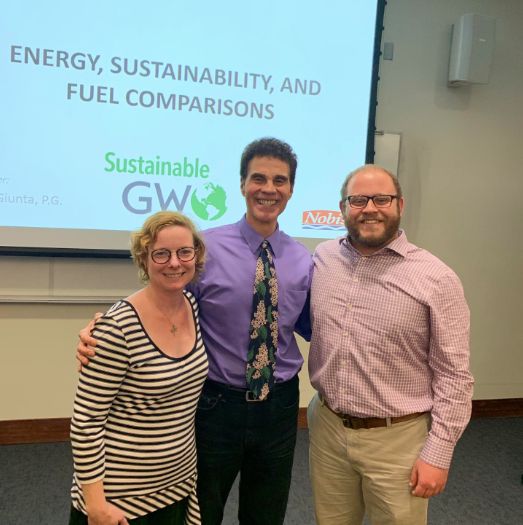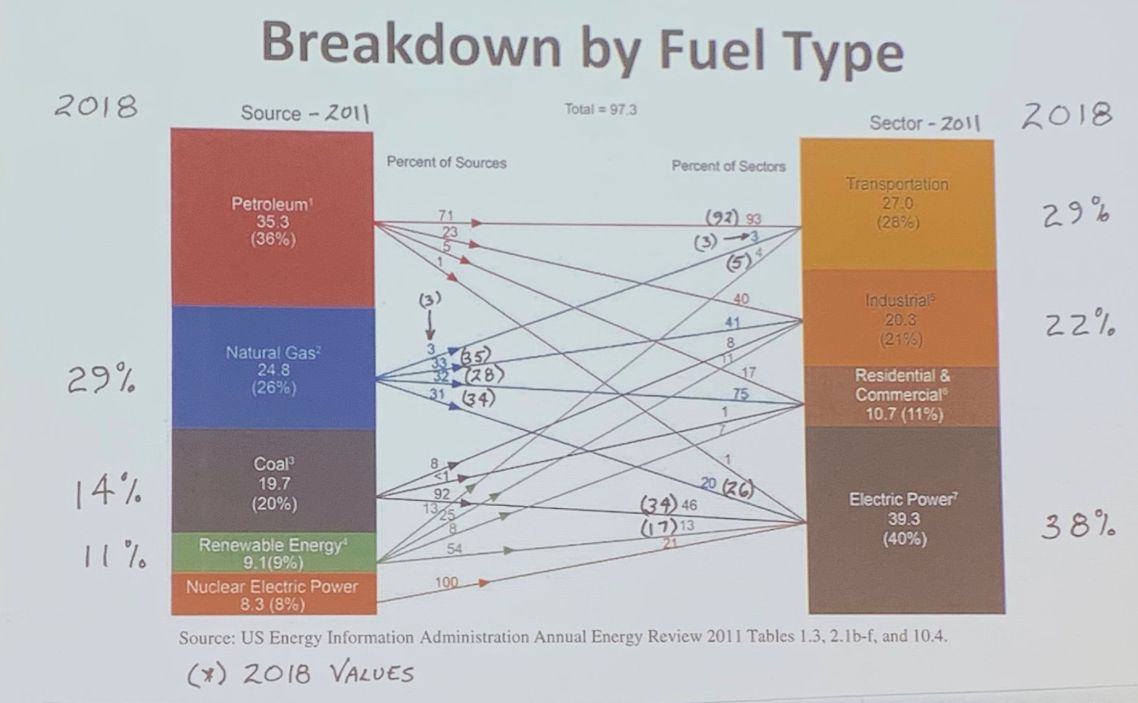
From left to right: Dr. Tara Scully, Tony Giunta (Mayor of Franklin, NH), and Max Gelber.
Sustainable GW’s practitioner forum series brings energy expert to campus.
Last month on, Tuesday April 2nd, the GW Sustainability department hosted Franklin, NH Mayor Tony Giunta to give a talk on his experiences as a sustainability professional in the public and private sector. Mayor Giunta is Director of Project Development at the Nobis Group and founder of a small-scale waste vegetable oil and biofuel company Amenico. The talk was a part of the department’s practitioner forum series launched last fall, in an effort to expose students to various facets of sustainability and explore what a sustainability career looks like.
The focus of the Mayor’s remarks was on current energy consumption and the need for innovation pragmatism to make a difference in environmental policy. Audience members heard about energy expenditures to better illustrate the broader picture of how renewable energy and nuclear power are used in contrast to petroleum and natural gas.

Mayor Guinta articulated that innovation is sorely needed in order to apply new solutions to pervasive problems. “When we think of sustainability, it really is breaking this cycle of the same old, same old. Doing things that we do today, just because we did them the same way yesterday, and not taking a critical look at how we use energy. We need to break that cycle, and look at new ways.”
For Giunta, concern over the American dependence on foreign oil led him to found Amenico, a fuel collection agency that reduces the energy cycle of waste vegetable oil. Innovation is applied when taking a product traditionally perceived as trash and turning it into a recovery of energy.
While extremely popular, Giunta noted that there are challenges in the mainstream adoption of renewable energy. Solar projects are difficult to get passed through municipalities, a dissonance remains between the popularity of solar in theory, and the adoption of solar projects in practice. The solution he believes is not through Congressional action but rather by focusing on renewable energy projects on a local level.
The mayor’s home of Franklin, New Hampshire has taken bold steps towards complete adoption of renewable energy, a reflection on Giunta’s leadership and the appointment of pro-renewable members to planning and zoning boards. “Franklin going green by 2050? Forget 2050, we are going green in 2019.”
Program manager Max Gelber was thankful that the Mayor came down to DC to speak. “Our practitioner forums give students a unique perspective on how they can make a difference and apply sustainable practices in their respective fields.”
Article by Ana Little-sana (CCAS ‘21).
.png)
